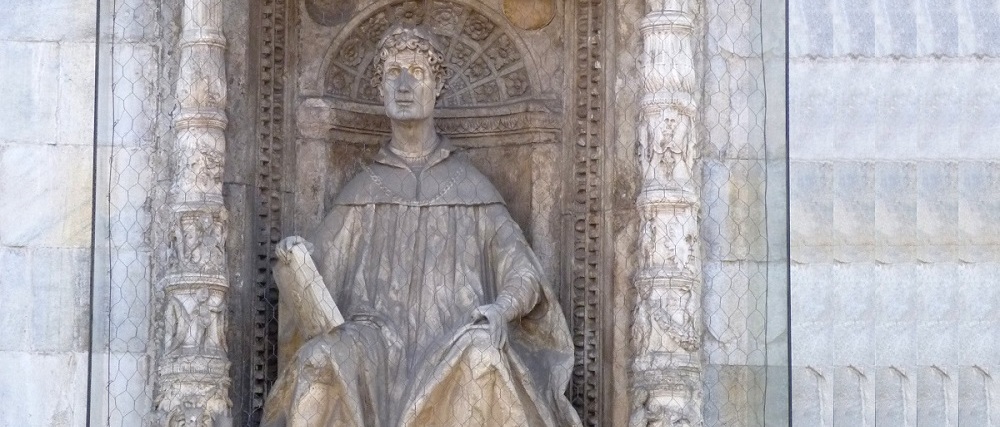Pliny the Younger
Posted on 26th December 2020
Born Gaius Caecilius Cilo around 61AD; his mother was a sister of Pliny the Elder.
Pliny the Younger received an extensive education, being taught at home and in Rome, and at the age of eighteen he began to practice law. At about this time his uncle Pliny the Elder died, passing his estate to Pliny the Younger. In his will he also adopted Pliny the Younger as his son.
Pliny the Younger’ career spanned across many emperors and he served in various positions. These include magistrate, military tribune, tribune of the people, prefect, consul and Imperial governor of a province.
To have survived so long working for both good and bad emperors and to have risen in the ranks is quite an achievement.
Pliny the Younger is best remembered for his writing, both letters and poetry. The letters to his friends that survive today give us an insight into life at that time and an individual view of incidents that occurred.
He wrote two letters about the eruption of Mount Vesuvius at which he was present and where Pliny the Elder died. One of these letters he wrote some twenty-seven years later, in a request from Tacitus, to learn more about the death of Pliny the Elder. I give you an excerpt of that letter.
‘He (Pliny the Elder) was at Misenum in his capacity as Commander of the Fleet on 24 August 79AD when between two and three in the afternoon, my mother drew his attention to a cloud of unusual size and appearance. He had had a sun bath, then a cold bath, and was reclining after dinner with his books. He called for his shoes and climbed up to where he could get the best view of the phenomenon. The cloud was rising from a mountain – at such a distance we couldn’t tell which, but afterwards learned that it was Vesuvius. I can best describe its shape by likening it to a pine tree. It rose into the sky on a very long trunk from which spread some branches. I imagine it had been raised by a sudden blast, which then weakened, leaving the cloud unsupported so that its own weight caused it to spread sideways. Some of the cloud was white, in other parts there were dark patches of dust and ash. The sight of it made the scientist in my uncle want to see it from closer at hand. He ordered a boat to be made ready. He offered me the opportunity of going along, but I preferred to remain home and study’.
Pliny the Younger’ death is uncertain, but it is judged that he died around 113AD as there are no letters concerning events after this date.
Tagged as: Junior Ancient Rome
Share this post:





